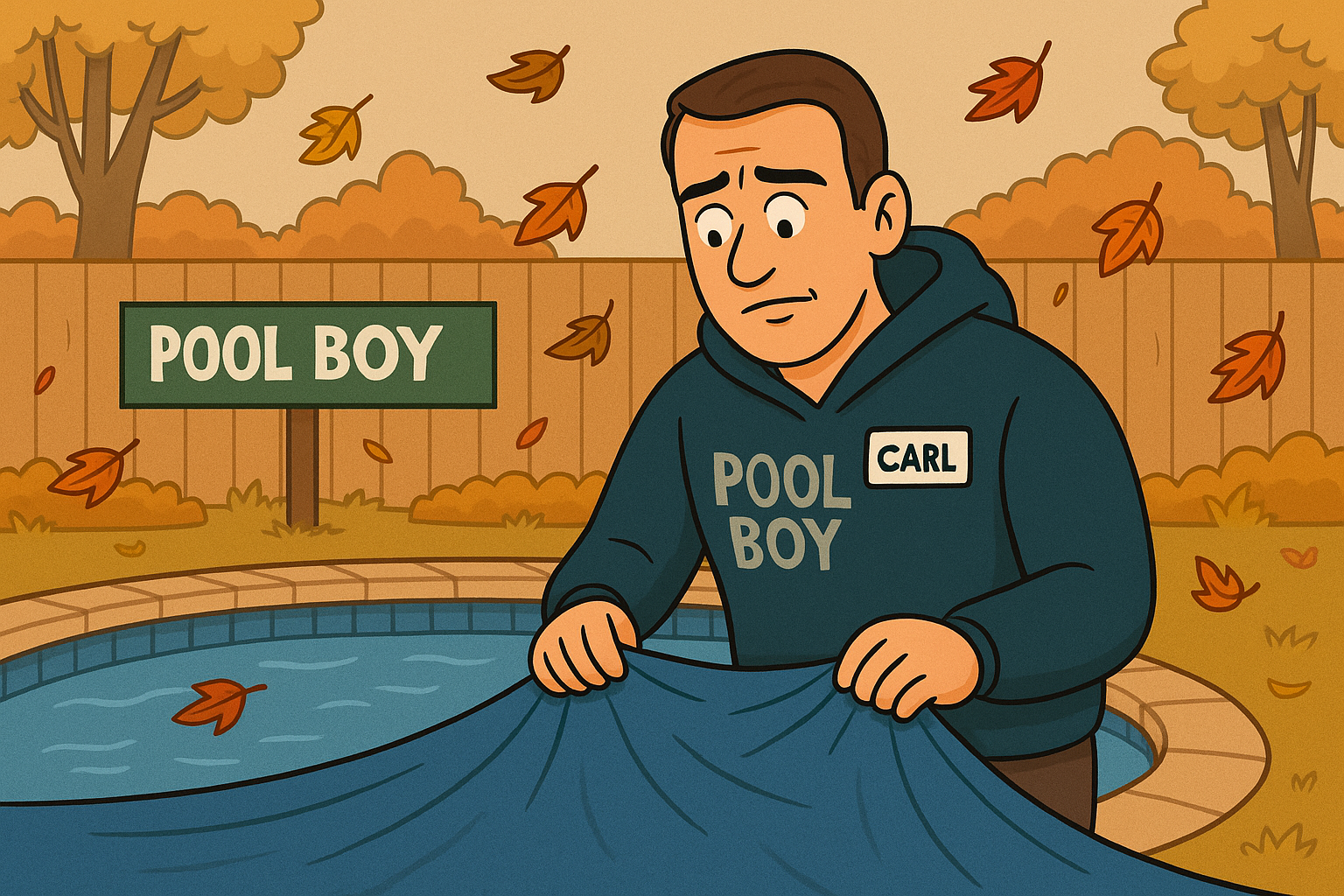Winter Pool Closing Checklist for New York Homeowners
When fall hits Upstate New York, it doesn’t take long for leaves to pile up and temperatures to drop. And if you’re not closing your pool properly before the first frost, you’re risking costly damage and a nasty green mess come spring.
Here’s your complete, Done Better Pools step-by-step checklist for closing your pool the right way, with everything you’ll need and why each step matters.
✅ 1. Balance Your Water Chemistry
Why: Proper pH, alkalinity, and hardness levels help prevent staining, corrosion, scale buildup, and damage to your liner or plaster over the winter months.
Target Levels:
pH: 7.2–7.6
Alkalinity: 80–120 ppm
Calcium Hardness: 200–400 ppm
Chlorine: 1–3 ppm
Pro Tip: Use test strips or a liquid test kit a few days before closing. Adjust as needed and give it time to circulate.
✅ 2. Shock the Pool
Why: Super-chlorinating kills off bacteria, algae, and organic contaminants so they don’t fester under the cover all winter long.
Use: Non-chlorine shock like Omega Shock is ideal, effective and safe for winter covers.
✅ 3. Add Winter Algaecide
Why: Algae doesn’t die in the cold, it just goes dormant. A dose of Omega Algaecide 60 will keep it from coming back strong in the spring.
Important: Choose a winter-formulated, non-foaming algaecide designed to last 4–6 months.
✅ 4. Clean and Vacuum Thoroughly
Why: Leaves, dirt, and debris left in your pool can cause stains, feed algae, and clog up your plumbing and filter during the off-season.
Do: Skim, brush the walls, vacuum the bottom, and empty skimmer and pump baskets.
✅ 5. Lower the Water Level
Why: Prevents freeze damage to skimmers and tile.
Mesh covers: Lower 12–18" below the skimmer.
Solid covers with drain panels: Follow the manufacturer’s instructions.
✅ 6. Blow Out the Lines
Why: Any water left in your plumbing can freeze and crack your pipes.
Do: Use a shop vac or air compressor to blow out return lines, skimmer lines, and the main drain. Then plug them using winter expansion plugs or gizmos.
✅ 7. Add Pool Antifreeze (if needed)
Why: If you’re not 100% sure the lines are clear of water, pool-grade antifreeze is cheap insurance, especially for skimmers and return lines.
Note: Never use RV or automotive antifreeze—only non-toxic antifreeze made for pools.
✅ 8. Clean the Filter and Equipment
Why: Dirty filters breed bacteria and mold. Cleaning before winter saves time in the spring and extends the life of your system.
Do:
Backwash sand/DE filters
Clean cartridge filters with filter degreaser
Drain pumps, heaters, chlorinators, and store indoors if possible
✅ 9. Use a Proper Winter Cover
Why: A solid or mesh winter cover protects your water from debris, UV light, and algae.
Bonus: Use a leaf net if you have trees nearby—it’ll save your sanity in spring cleanup.
✅ 10. Stock Up Early
Why: In East Greenbush and across NY, once September hits, closing supplies go fast. Don’t wait until they’re out of stock.
🛒 Suggested Supplies:
Omega Shock
Omega Algaecide 60
Chlorine Tabs
Winter Cover + Water Bags or Anchors
Leaf Net
Test Kit
Skimmer Plug / Gizmo
Return Line Plugs
Antifreeze
Filter Cleaner
Final Thoughts
Winterizing your pool might feel like the end of the fun, but it’s actually the first step to an easy, algae-free spring opening.
🎯 Need help or supplies?
Swing by Done Better Pools in East Greenbush. We’ll get you everything you need to close your pool the right way.


